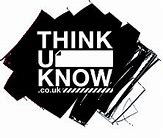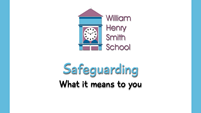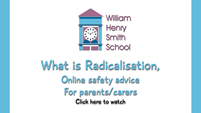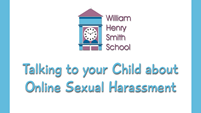Parents and carers must be aware that although the internet provides a wealth of useful information that can support academic and social learning, children and young people need to be aware that people are not always what they seem on the internet. For example, they can pretend to be a teenager when they are actually an adult. Be aware also that young people could be seeking help/guidance from dubious and/or unregulated websites.
Top safety tips to discuss with your child
- Never give out your real name, address or phone number
- Never tell anyone where you go to school
- Never agree to meet anyone from a chatroom
- Always tell an adult if someone makes inappropriate suggestions to you or makes you feel uncomfortable online
Teach them about the danger signs
- If the person insists on having your address or phone number
- If the person wants you to email pictures to them of yourself in a way that you know is not correct
- If the person tells you things and tells you not to tell anyone else
- If the person wants to meet you and tells you not to let anyone know
- If the person wants to keep their chats with you secret
- If the person tells you that you will get into trouble for telling an adult what is going on.
Often young people are afraid to tell parents in case their computer is taken away. Try and be proactive, encouraging young people to share their surfing and be open and honest; after all their safety is most important. The best way forward is to learn all you can about computers, how to access files (possibly hidden on your child's computer), monitor the sites that they are using and, where possible, suggest other, more appropriate, avenues of getting the information they require. Sit with your child, surf with them and suggest ways to help keep themselves safe.
There are some useful websites for children and young people regarding internet safety:


And a useful ones for parents are: 












